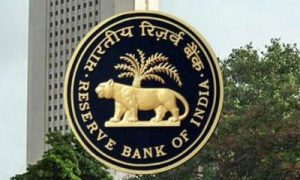Credit card companies charge cash advance fees when customers use their credit cards to get cash at an ATM.
Read More: How Ayushman Bharat Card Offers Affordable Healthcare; Know Who All Are Eligible
Credit card usage in India has experienced a remarkable surge, propelled by robust consumer activity, indicating a broader trend of credit cards in the market. In response to this trend, credit card companies are rolling out various offers to expand their customer base. These offers include Lifetime Free Credit Cards, discounts, airport lounge access and other schemes. However, the question arises as to how credit card companies recover the money spent on these schemes. Many credit card users fail to pay their credit card bills even by the due date, leading to additional charges such as interest and penalties imposed by the companies.
Moreover, credit card companies charge processing fees when customers opt for EMI schemes and they also levy annual and renewal fees. Nonetheless, these companies often waive annual and renewal fees once customers have reached a certain spending threshold annually. Additionally, credit card companies generate revenue through balance transfers, late payments, cash advances, foreign transactions and various other fees.
Annual Fee: Annual fees are typically applied to cards with high reward rates and those designed for individuals with less-than-perfect credit.
Read More: Govt Takes Action Against Financial Frauds, Blocks 1.4 Lakh Mobile Numbers
These fees help cover the cost of rewards and other benefits associated with the card.
Cash Advance Fee: When customers use their credit cards to withdraw cash from an ATM, credit card companies charge cash advance fees. These fees typically range from 2% to 5% of the amount withdrawn and serve to discourage cash advances, which are riskier for the issuer.
Balance Transfer Fee: This fee is applied when customers transfer debt from one credit card to another to obtain a lower interest rate. The balance transfer fee usually ranges from 3% to 5% of the transferred amount, although some cards may waive this fee for a limited period or altogether.
Late Fee: Customers who fail to pay at least the minimum amount due by the due date are subject to late fees. While some cards may waive the late fee for the first occurrence or altogether, late payments can negatively impact the customer’s credit score.
Credit card companies strategically employ these fees to generate revenue while providing incentives and benefits to their customers. However, customers must be mindful of these fees and manage their credit card usage responsibly to avoid incurring unnecessary costs.





































